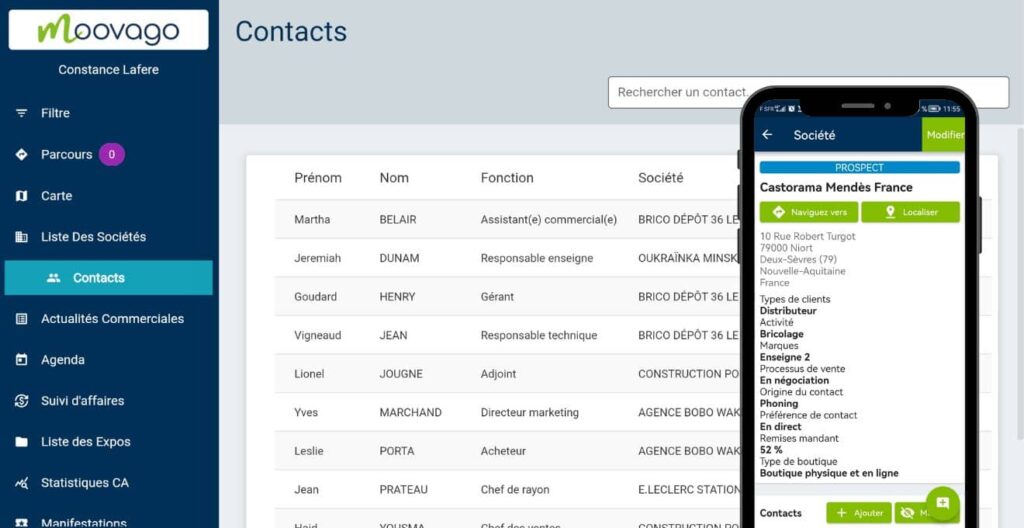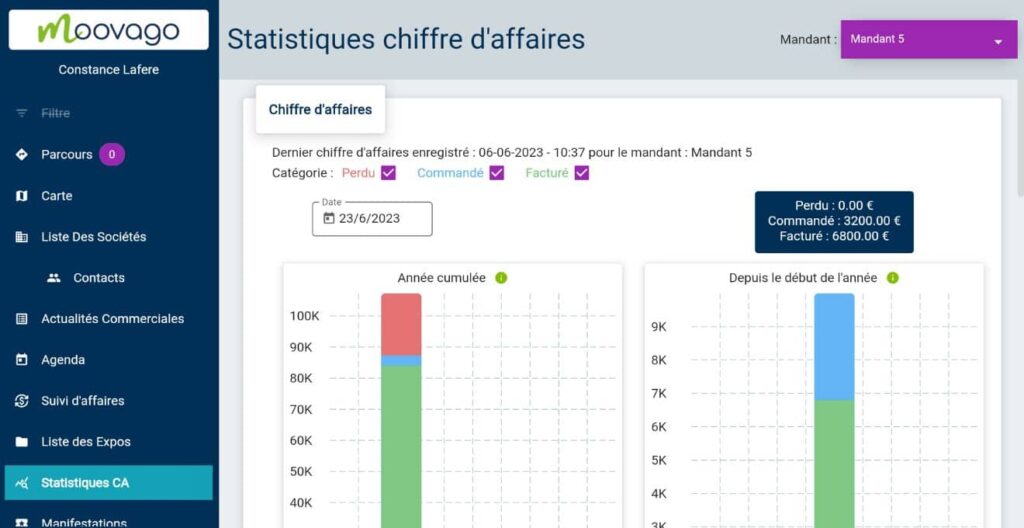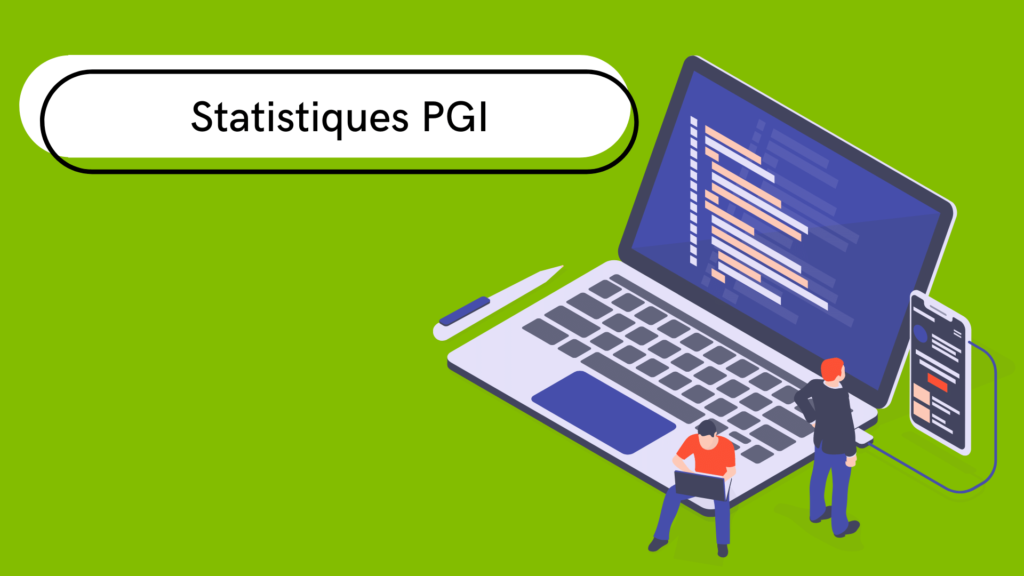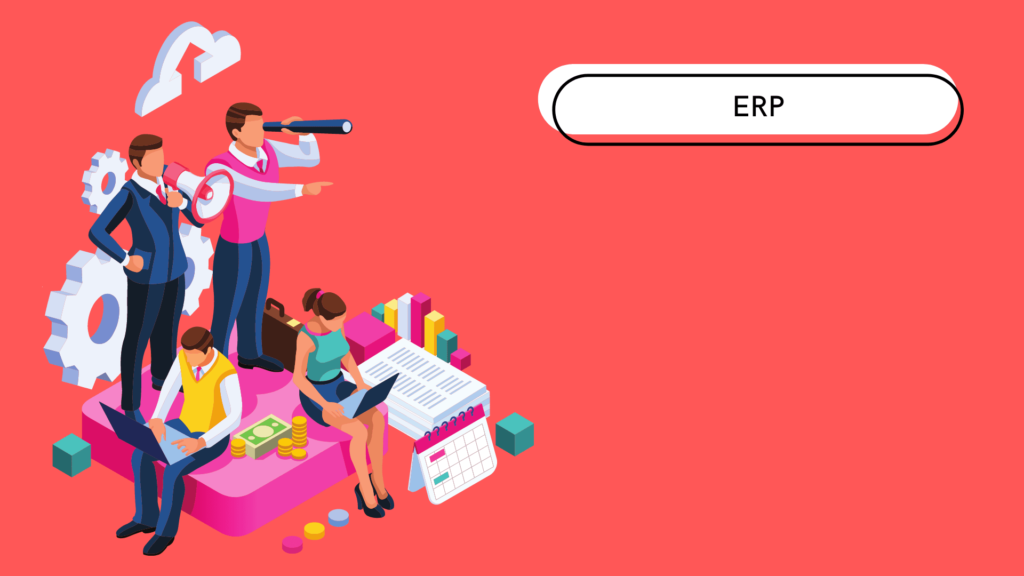We hear a lot about ERP software. It stands
Let’s take a look at what ERP software is used for, and the many advantages it offers.
When we talk about ERP, we’re generally referring to an ERP solution. This solution can take the form of a mobile or web application, software, tool or system.
An ERP is a software program, package or application that automates business management, thanks to the information it gathers from the company’s database. The data comes from the company’s various departments, such as accounting, supply chain, sales force, marketing and human resources.
It’s important to note that an ERP system can be relevant to both large companies and SMEs.
Let’s take a look at the role of an ERP system, and its advantages.
Resource: everything you need to know about ERP software.
ERP software advantage #1: Centralized information
This integrated management is extremely important for all companies. With ERP software, it’s possible to track what’s going on between customers and the company, so you can make the best decisions.
To manage your customers and your business as efficiently as possible, you also need to personalize it as much as possible. Because your company is unique, so are your customers! An ERP tool will enable you to store essential data specific to your business and your needs.
In the same way, all the processes and information specific to your business can be recorded and structured as you wish. Generally speaking, when it comes to ERP, taking into account your company’s needs and specificities is the first essential step towards optimized management.
By consolidating data in a single tool and making it accessible to those who need it, the company will enable all employees to share the same way of working and the same information. This will prevent
This improved communication of information internally will also enable the emergence of very useful data for monitoring the effectiveness of sales operations, or for offering personalized help and offers to your customers.
ERP software advantage #2: Inventory management
ERP software includes inventory management, with products and stock arriving and leaving the warehouse. This gives real-time insight into the arrival of new products, and helps to understand why certain links in the supply and sales chain are causing blockages or slowdowns.
Employees will be able to anticipate with ERP software. Users have real-time access to inventories, sales and deliveries, for example, so they can quickly order new stock to meet new demand.
ERP software advantage #3: Contact management
As your company grows, so does its customer database, customer portfolio and customer file.
It’s getting harder and harder to centralize information and organize conversations with customers and prospects.
Important conversations and information are lost in e-mails, Excel files at the back of computers, on loose sheets of paper or in the memories of your colleagues.
All this prevents proper handling of customers, prospects, leads and suspects. You lose opportunities, and you may lose customers who are dissatisfied with your customer service. In short, you’re losing money.
This is where ERP comes in: it enables all company employees to find customer information in a single tool , making it easier to share and retrieve data. What’s more, it’s easier to communicate with customers and potential customers now that the company’s sales staff have access to the history of interactions between them and the company. They can be precise and know the potential customer’s needs in advance.

Centralize and efficiently manage your customer & prospect contacts with an ERP system. Example here with Moovago: list of contacts on the web application and list of companies on mobile.
ERP software advantage #4: Accessibility
The majority of ERP systems are Saas-based. Saas is an acronym for software as a service.
SaaS software is stored on cloud servers that can be accessed directly via the Internet. Unlike software that has to be downloaded to the user’s computer, SaaS software can be accessed directly via a web browser.
Accessibility is one of the advantages of the Saas method: software can be used from anywhere, whether you’re traveling or at home.
ERP software advantage #5: Global vision and statistics
Companies of all sizes need data to help them make the right decisions. ERP software will enable you to bring together data from many different tools, such as Google Analytics, your website, your application, your social networks, your various departments, your factories and your distribution centers, for example.
Now that all information is centralized in one place, it’s quick and easy :
- generate statistics from these data.
- make the right decisions, because you have data to fall back on. For example, you can find out how existing customers have contacted you, and what they’re looking for, so you can improve your customer service and prospecting.
- share essential information between employees.
ERP software advantage #6: Task automation
An ERP allows you toautomate recurring and time-consuming tasks, meaning that certain actions will be carried out automatically to follow up on what you’ve defined. For example, it can automatically generate daily reports based on data entered in the ERP software.
It will improve these tasks by making no mistakes, and will help identify expenses that can be reduced. By automating these tasks, you’ll be able to cut costs and increase your budget in other important areas of your business.
ERP software advantage #7: Planning and anticipation
In the business world, it’s essential to be proactive to ensure your company’s growth. Thanks to ERP software and the history you have of your customers, potential customers, sales revenue, margins, sales etc…
You’ll be able to anticipate the future, or rather, the ERP software will try to predict the future for you, understanding how your business grows each year, and the changes taking place within it. In more complex economic contexts, it also enables you to carry out more comprehensive analyses, to anticipate potential disruptions.
By sticking to the ERP software data and drawing up a detailed strategic and business plan, the company can give itself a head start over its competitors, enabling it to achieve greater success.
This data will serve as a guide, reminding you of your objectives and why you’re doing what you’re doing. It can also help employees understand why you’ve adopted your way of doing things.

An ERP lets you quickly visualize your sales revenue, and find all your contacts in one place. Here’s an example with Moovago.
Summary and conclusion
There are, of course, advantages and benefits specific to each ERP software package. And ERP solutions likewise have their own disadvantages and limitations.
In a nutshell:
- ERP software is essential for keeping a similar roadmap for the whole company. Consumers are not equal in the eyes of the company, and ERP software will enable you to identify those who are essential to your business, allowing you to spend less and keep things simple.
- An ERP must be adapted to the type of organization, size and market of the company using it.
- Without data, an ERP is useless. Convincing employees to use it is essential.
- ERP software allows you to identify areas for improvement and ensure that all employees have the same information.
Choosing ERP software isn’t always easy. To find the ideal ERP for your company, ask yourself the right questions: What do you need to do? What business-related data do you need to centralize? How do you want to structure it? What functionalities do you expect from such a tool?
Are you an independent sales representative? Find out more about our ERP system designed especially for you and your partners (principals, managers, customers, etc.).


